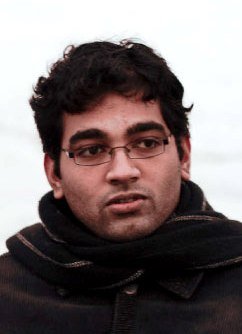Specialized iNANO Lecture: Directed Molecular Self-assembly Using DNA Origami
Dr. Ashwin Gopinath Postdoc, The Rothemund Lab, California Institute of Technology, California, USA
Info about event
Time
Location
iNANO Auditorium (1593-012), Gustav Wieds Vej 14, 8000 Aarhus C

Dr. Ashwin Gopinath | |
| Host: Professor Kurt V. Gothelf, iNANO & Department of Chemistry, Aarhus University |
